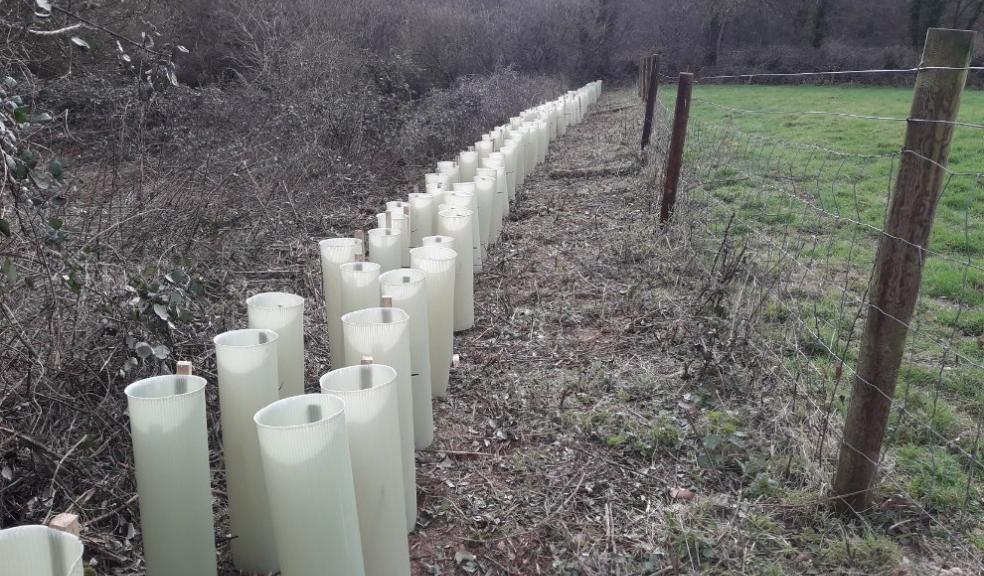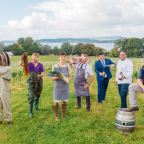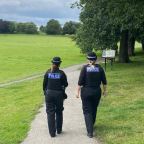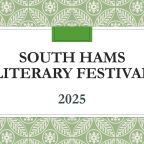
Wildlife and donkeys benefit from flood-friendly hedge-planting
More than 500 young hedge trees have been planted at the Woods Farm site near Sidmouth
Rare butterflies and birds could benefit from hedge restoration work at animal welfare charity The Donkey Sanctuary as part of a wider scheme to improve water quality and reduce flooding across parts of East Devon.
Staff from the sanctuary have planted more the 500 young hedge trees so far to help restore and extend hedgerows at the charity’s Woods Farm site near Sidmouth, East Devon.
The trees, a mix of native species including beech, rowan, hawthorn, blackthorn and spindle, were planted as part of the Upstream Thinking Project and will reduce sediment and water run off at the site which will in turn help reduce the risk of flooding across the catchment of the nearby River Otter.
The Upstream Thinking Project is funded by South West Water and aims to improve water quality by providing grants and advice on a number of measures for land owners and managers located within river catchments. The Project’s partnership with the Woodland Trust enables them to provide free native trees.
The wildlife-friendly hedges will enrich the environment of the resident donkeys and provide a home to rare threatened farmland birds such as linnet and yellowhammer. It is also hoped that it will provide habitat for the rare brown hairstreak butterfly.
Hedges can play an important role in improving water quality and reducing flooding risk because their presence can reduce the speed and amount of water running off the land following heavy rain as well as reducing sediment run-off.
Hedgerows are important for wildlife as they provide connectivity across the landscape, allowing animals to disperse and travel between areas of suitable habitat.
A wide range of farmland and woodland birds depend on hedges for food and safe places to nest and take shelter. They are also used by many species of bat for commuting and foraging, including the brown long-eared bat of which there is a maternity colony roosting in the farmhouse.
Ruth Angell, Ecology and Conservation Manager at The Donkey Sanctuary, said: “We are very grateful to the Upstream Thinking project for helping us make these improvements. Hedges are a really important component of the landscape - visually, culturally and ecologically.
“We also think they are very important for our donkeys, as they give them shade, shelter and browse.”
The trees were kindly provided by the Devon Wildlife Trust (DWT), a partner in the Upstream Thinking Project.
David Rolls, Working Wetlands Advisory Officer/DWT: “We are delighted to be able to team up with the Donkey Sanctuary in this way on this important project.
“The provision of free trees is just one of the ways we are working with a range of landowners in the Otter catchment who are undertaking some really significant work in the local area. It’s all very positive”.
Woods Farm is not open to the public. To find out more about conservation volunteering with The Donkey Sanctuary email: volunteer@thedonkeysanctuary.org.uk
The Donkey Sanctuary is a global leader for equine welfare, research and veterinary care. The charity operates programmes worldwide for animals working in agriculture, industry and transportation.











